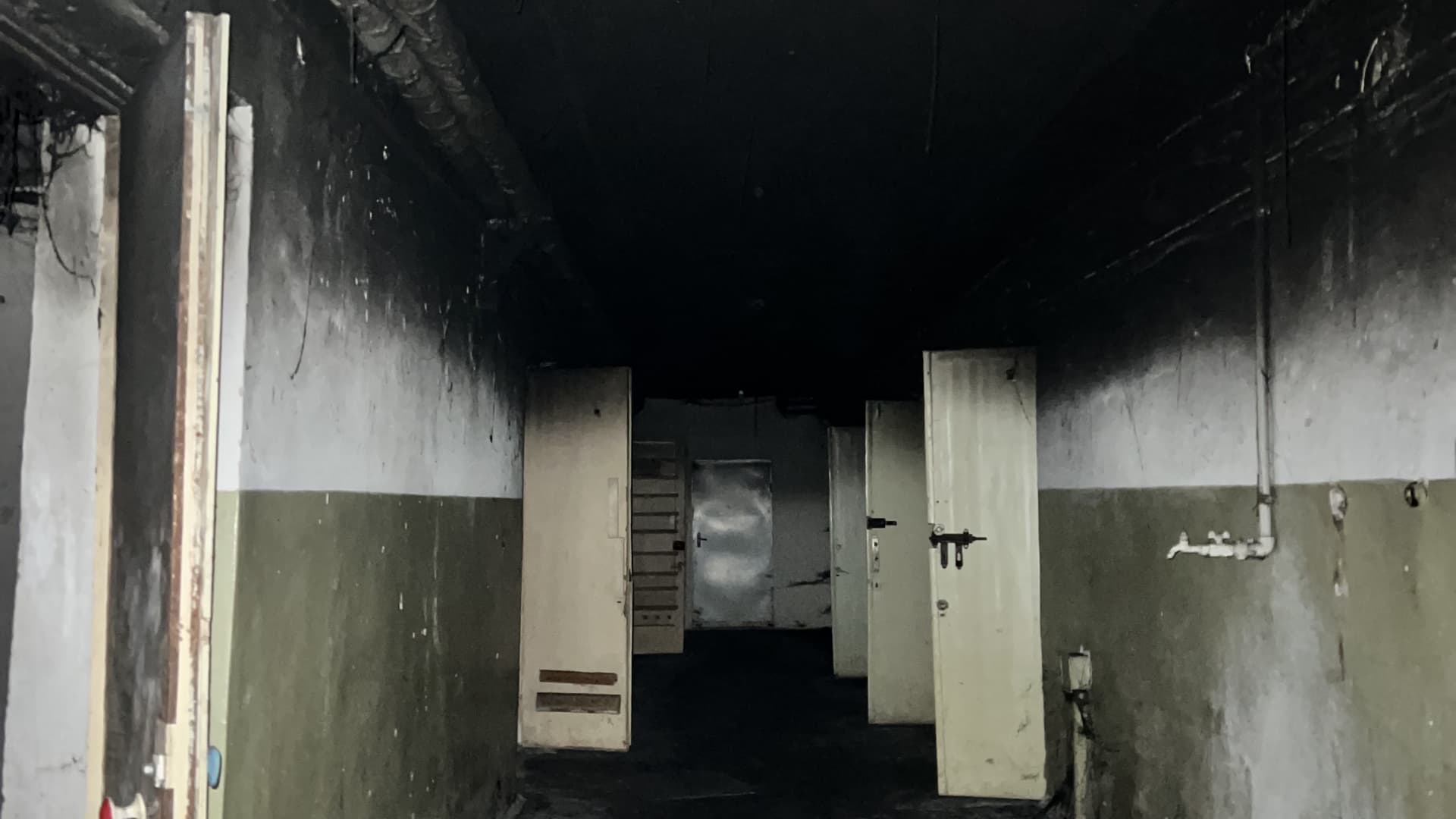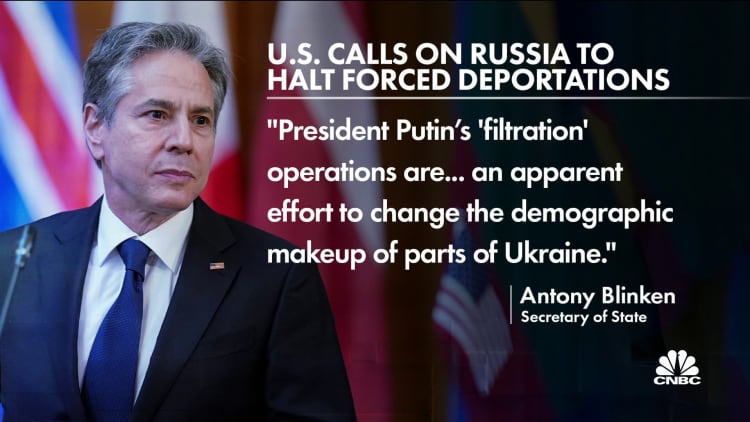
Editor’s note: The following article contains graphic material detailing reports of torture of people in Ukraine.
A photo of a hallway in a building where Russian forces established a torture center in Kherson.
Photo: Harvey Presence
WASHINGTON – At least 20 torture centers in the recently liberated Ukrainian city of Kherson have direct financial links to the Kremlin, according to a team of international lawyers helping Ukraine investigate alleged Russian war crimes.
The new evidence comes one year after Kherson was captured by Russian forces. It was the first major Ukrainian city to fall during Moscow’s full-scale invasion. In November, Ukrainian forces liberated the southeastern city, once home to more than 280,000 people.
“Working closely with Ukraine’s Office of the Prosecutor General, a paper trail has been exposed that shows that the main torture chambers in Kherson and those administering them do so through the financial support of the Russian state,” Wayne Jordash, an international human rights lawyer and managing partner of the law firm Global Rights Compliance, told CNBC.
Jordash added that the team of lawyers, experts and investigators uncovered that the torture sites were directly managed by several Kremlin security agencies, including Russia’s Federal Security Services, known as the FSB, successor to the KGB.
A photo of a cell used by Russian forces to detain Ukrainian civilians in the southeastern city of Kherson, Ukraine.
Photo: Harvey Presence
“Millions of rubles from [Russian President Vladimir] Putin and his government helped to fund the Kherson torture chambers that were designed with one aim – to kill those who posed a threat to the Kremlin’s plans to extinguish Ukrainian nationality and culture,” added Jordash, who leads a Mobile Justice Team, a group of international lawyers and investigators supporting Ukraine’s prosecutor general’s office.
The Mobile Justice Team is one component of the Atrocity Crimes Advisory Group, which is funded by the State Department, European Union and the U.K.’s Foreign, Commonwealth and Development Office.
Before Russia’s full-scale invasion of Ukraine, the State Department had a small team in the country providing operational assistance to the prosecutor general.
Read more: Russian forces have relocated at least 6,000 Ukrainian children to camps since start of war, new report says
“After the invasion, we had to think about how to scale this and so we immediately reached out to the European Union and the United Kingdom and both were keen to join forces in this regard. And so this is now a three-way effort,” said Beth Van Schaack, U.S. ambassador-at-large for global criminal justice.
Van Schaack described the Mobile Justice Teams as a rapid response group made up of multinational and multidisciplinary experts tasked with helping investigators lock down crime scenes, identify evidence, and interview survivors and witnesses. She added that Ukraine’s prosecutor general has cataloged more than 70,000 Russian war crimes since Moscow’s conflict began a year ago.
War crime prosecutor of Kharkiv Oblast stands with forensic technician and policeman at the site of a mass burial in a forest during exhumation on September 16, 2022 in Izium, Ukraine.
Yevhenii Zavhorodnii | Global Images Ukraine | Getty Images News | Getty Images
“The goal is to support ultimately the prosecutor general in his efforts to do effective investigations to international standards, to put together dossiers on responsible individuals and ultimately to bring criminal cases in domestic courts,” she added.
“Whenever Russia has troops withdraw or troops retreat, journalists, human rights advocates, investigators, NGO workers are able to get into those areas and they are confronted by this potential evidence of serious atrocities,” Van Schaack said, referencing a pattern seen in Bucha, Irpin, Mariupol, Izium, Kherson, Kharkiv, and other cities and towns where Russian troops were deployed.
A U.N. report previously outlined grisly accusations of war crimes committed by Russian forces in Ukraine.
The Kremlin has previously denied that its forces commit war crimes or deliberately target civilians. The Russian Embassy in Washington, D.C., did not immediately respond to CNBC’s request for comment.
In Kherson, more than 1,000 Ukrainians gave first-hand accounts of their time in the torture centers, which were located in basements of abandoned buildings as well as in former prisons. More than 400 people were also reported to have vanished from Kherson torture sites, but it is not clear if they were killed or taken to Russian-held territory.
The torture sites served a variety of purposes, including, detention, interrogation, reeducation and physical beatings.
A calendar marked on a wall in a cell as officers of the War Crimes Prosecutor office and police officers investigate war crimes committed by the Russian occupying forces on the local civilian population in the basements and rooms in Kherson, Ukraine.
Pierre Crom | Getty Images
Survivors also said in interviews with lawyers that electric shock torture and waterboarding were common tactics used by Russian forces at the torture centers.
In some cases, Ukrainians were forced into memorizing and reciting pro-Russian slogans, poems and songs.
CNBC Politics
“This is yet more evidence of genocidal tactics baked into Putin’s plan to extinguish Ukrainian identity in the areas under Russian occupation,” Jordash said.
He added that the Kremlin has shown no signs of relinquishing its ambitions to erase Ukrainian sovereignty in order to restore the Soviet empire.
“Many more torture centers certainly exist around Ukraine in occupied areas and are being funded by Putin’s credit card,” Jordash added.
Clarification: This story has been updated to clarify that Mariupol has not been liberated.


0 Comments :
Post a Comment